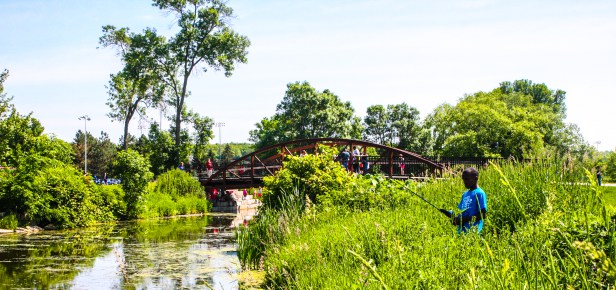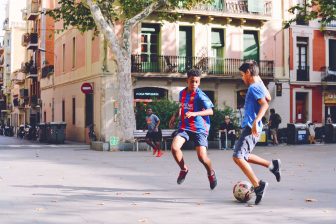
Children in nature begins in Madison
The City of Madison is on course to start an exciting initiative. With a planning grant of $25,000 from the Children & Nature Network in partnership with the National League of Cities Institute for Youth several public, nonprofit and private institutions are working together to formulate a program to make the many outdoor recreation resources of our community more accessible to kids. With a few organizational meetings already concluded and a collaborative process set in motion, efforts are now underway to make Madison a national leader in nature-based experiential education. Administrated by the Dane County Department of Public Health the Children In Nature Initiative is in the beginning stages of a master plan to impact the lives of young people and their families throughout the region.
“We’re assessing what works locally in connecting children to nature and where there might be gaps, particularly around equitable access,” said Mary Michaud, Division of Policy, Planning & Evaluation director at Public Health. “We have engaged a local nonprofit, the Center for Resilient Cities, to help organize the effort.”
Selected among seven cities across the U.S. Madison is in competition for a much larger implementation grant to put the forthcoming plan into action. Aiming to overcome what Children & Nature Network founder Richard Louv describes as “nature deficient disorder” the cities of Saint Paul, Minnesota; Grand Rapids, Michigan; Providence, Rhode Island; Louisville, Kentucky; Austin, Texas; and San Francisco, California are all vying for the financial resources necessary to get more kids outside.
“Comfort and familiarity with nature is an essential part of our kids’ education. We need to make space for them to experience wild places, including those tucked away within our city blocks,” said Michael Leeson, a father of 5 on Madison’s Northside. “We know this is vital for their well-being, yet also helps them cultivate their creativity, problem-solving and cooperative abilities.”
Taking into consideration the interests of the community as a whole local initiative planners are forging relationships with a broad cross-section of stakeholders in the hopes of creating a thoroughly comprehensive and inclusive program. Relying on its strong track record of public engagement the Milwaukee-based Center for Resilient Cities is orchestrating a strategy through which under represented citizens, minority youth in particular, will be able to participate in making their neighborhoods more “nature-friendly”.
“We’re really excited to be part of this process because it’s really what we do,” said the Center’s executive director Marcia Caton Campbell. “But it’s not for us to say what’s important to the communities we want to connect with. We’re going to let the youth and community members tell us how they want to get involved with nature.”
Organizations that already work directly on issues of environmental protection, sustainably, social equity and racial diversity are lending their expertise to make this initiative successful. Local partners include the Madison Parks Department, the Aldo Leopold Nature Center, Community Groundworks, Olbrich Gardens and many others. Maria Moreno the multicultural outreach coordinator of the UW Madison Arboretum, for example, said her organization will help to provide environmental learning curriculum for the community in both English and Spanish. As a collaborative effort the contributions of each organization can complement one another and maximize the program’s overall impact and help to break down institutional obstacles that make access to nature complicated.[+] Read More
Author: James Will from Joy Trip Project
Photo Credit: Photo by Joy Trip Project




